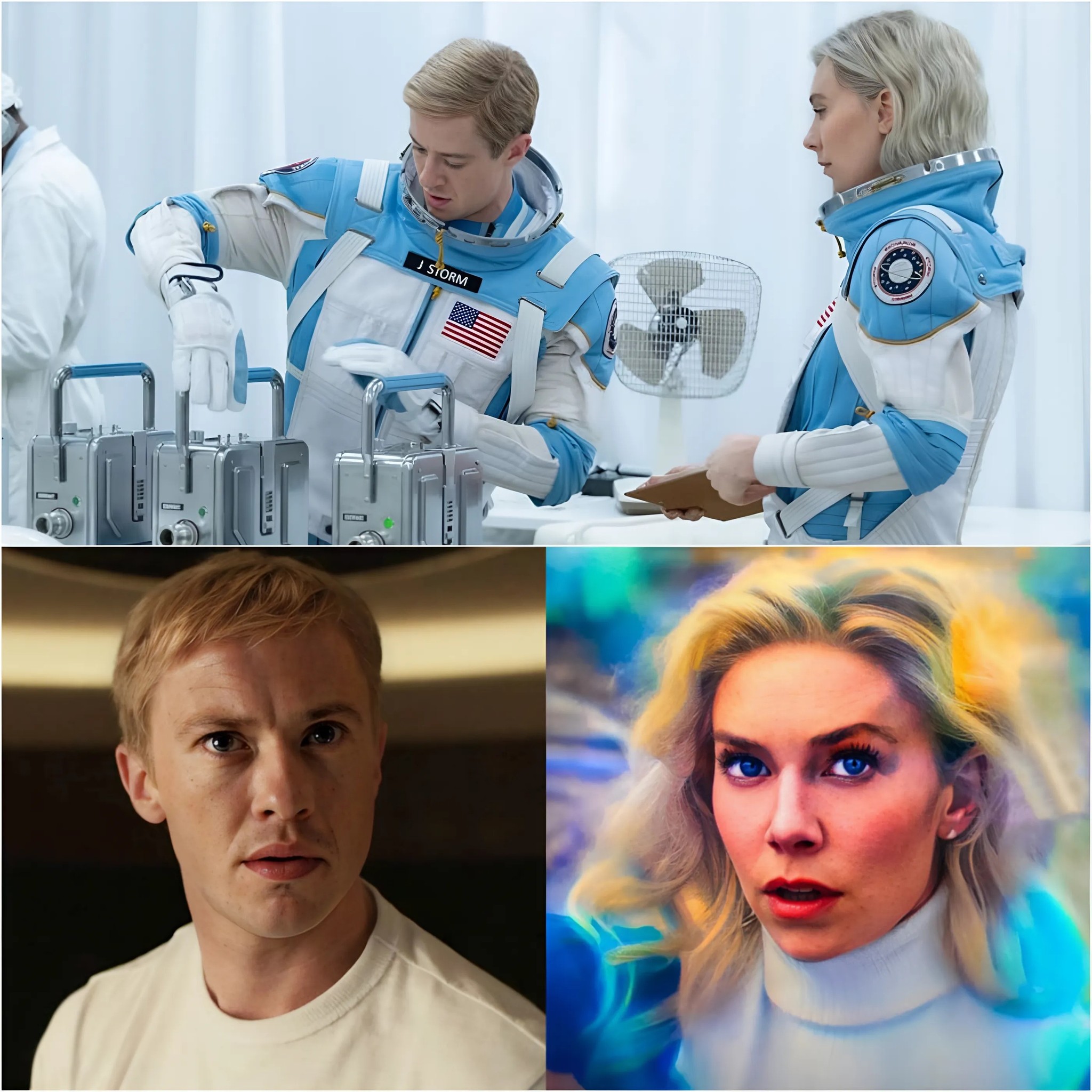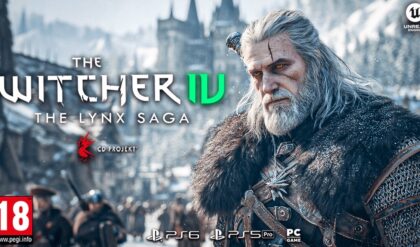Marvel’s Fantastic Four, long heralded as the cornerstone of the Marvel Comics universe, is set to make its grand debut in the Marvel Cinematic Universe (MCU) with The Fantastic Four: First Steps, slated for release on July 25, 2025. However, the excitement surrounding the reboot has been overshadowed by a wave of fan outrage following revelations about significant changes to the iconic team, particularly Sue Storm (Invisible Woman) and Johnny Storm (Human Torch), tailored to appeal to “modern audiences.” These alterations, which include a reimagined Sue as the emotional and political linchpin of the team and a less womanizing, more introspective Johnny, have ignited fierce debates across social media platforms like X. This 1500-word article explores the nature of these changes, their implications for the Fantastic Four’s legacy, and why they’ve sparked such a visceral reaction from fans.

The Changes That Sparked the Storm
The Fantastic Four—Reed Richards (Mr. Fantastic), Sue Storm (Invisible Woman), Johnny Storm (Human Torch), and Ben Grimm (The Thing)—have been Marvel’s “First Family” since their debut in 1961, created by Stan Lee and Jack Kirby. Known for their blend of scientific adventure, family dynamics, and cosmic stakes, the team has endured as a symbol of innovation and unity. However, The Fantastic Four: First Steps, directed by Matt Shakman, is taking a bold new approach, setting the story in a retro-futuristic 1960s-inspired alternate universe, distinct from the main MCU timeline. While the film skips the team’s origin story, focusing on their established dynamic four years after gaining powers, it’s the character reimaginings that have fans up in arms.
According to interviews with the cast and crew, Sue Storm, played by Vanessa Kirby, is positioned as the emotional and intellectual heart of the team. As head of the Future Foundation, a concept drawn from Jonathan Hickman’s 21st-century comics, she has achieved global demilitarization and peace, embodying what director Shakman calls “the most emotionally intelligent person on the planet.” This shift elevates Sue from her traditional role, where she was often relegated to a supportive or damsel-like figure, to a global leader whose force fields and invisibility are matched by her diplomatic prowess. The narrative also hints at her pregnancy, introducing the possibility of Franklin Richards, a character with universe-altering powers, which could tie into larger MCU events like Avengers: Secret Wars.
Johnny Storm, portrayed by Joseph Quinn, undergoes an equally dramatic overhaul. Previous iterations, notably Chris Evans’ in the 2005 and 2007 Fox films, depicted Johnny as a brash, womanizing thrill-seeker. Quinn, in collaboration with Marvel Studios president Kevin Feige, has consciously moved away from this archetype, questioning whether a “womanizing, devil-may-care guy” is “sexy these days.” Instead, his Johnny is described as emotionally intelligent, self-aware, and less callous, with a focus on the psychological roots of his attention-seeking behavior. This reimagining aims to align Johnny with contemporary cultural sensitivities, emphasizing depth over bravado, though he retains his humor and confidence.
Fan Backlash: A Betrayal of the Fantastic Four’s Spirit?
The announcement of these changes, detailed in a promotional interview with Entertainment Weekly, has unleashed a torrent of criticism on platforms like X. Posts such as “Marvel Reveals MAJOR Changes To Fantastic Four, And Fans Will NOT Like This” and “HUGE Change To Human Torch Upsets Chuds” reflect a sentiment that Marvel is prioritizing “woke” messaging over fidelity to the source material. Fans argue that Sue’s elevated role risks overshadowing Reed, traditionally the team’s genius leader, and that Johnny’s toned-down persona strips him of the reckless charm that defined him. One X user lamented, “Johnny Storm was the ultimate hothead, and now he’s some therapy-speak guy? This isn’t the Fantastic Four I grew up with.”
The backlash isn’t solely about character changes. The decision to cast Julia Garner as a female Silver Surfer, replacing the iconic male character Sh分别是 post:0 post:1, has further fueled accusations of “sex-swapping” and pandering. Critics argue that these alterations reflect a broader trend in the MCU, where films like The Marvels and Captain Marvel have been accused of prioritizing progressive ideals over storytelling. The term “M-She-U,” a pejorative used to criticize Marvel’s female-led projects, has resurfaced in discussions about Sue’s prominence, with some fans claiming the film is “entirely focused on Sue Storm” at the expense of the team’s balance post:11.
A Modern Take: Why Marvel Made These Changes
Marvel’s decision to reimagine Sue and Johnny reflects an attempt to address long-standing criticisms of the Fantastic Four’s dated dynamics. In the 1961 comics, Sue was often sidelined as the “Invisible Girl,” a name and role that felt reductive by modern standards. Her powers—initially limited to invisibility—were less dynamic than her teammates’, and her character frequently served as a romantic foil for Reed. The 2005 and 2007 films, while popularizing Jessica Alba’s Sue, leaned into her as a sex symbol, with scenes that played her nudity for laughs web:14. The 2015 reboot, despite a stronger Sue (Kate Mara), still underutilized her potential. By contrast, First Steps aims to showcase Sue’s force fields and strategic mind, drawing from later comics where she’s a powerhouse capable of single-handedly repelling threats.
Johnny’s overhaul addresses similar concerns. Chris Evans’ portrayal, while beloved, leaned heavily on a playboy archetype that, in 2025, risks feeling misogynistic or out of touch. Quinn’s comments about cultural shifts—“is that sexy these days? I don’t think so”—suggest Marvel is responding to evolving audience expectations, where toxic masculinity is less celebrated web:19. By emphasizing Johnny’s intelligence (he’s on the spaceship for a reason, per Shakman) and emotional depth, the film seeks to make him a more relatable hero, akin to the MCU’s successful retooling of Tony Stark from a selfish playboy to a self-sacrificing leader.
The retro-futuristic setting and the inclusion of Galactus (Ralph Ineson) and the Silver Surfer (Julia Garner) further indicate Marvel’s ambition to differentiate First Steps from past failures. Unlike the 2007 film, which infamously depicted Galactus as a cosmic cloud, this version promises a comic-accurate, titanic humanoid, addressing a 20-year fan grievance web:3 web:6. The alternate universe setting allows Marvel to experiment without disrupting the main MCU timeline, potentially setting up the Fantastic Four as key players in Avengers: Doomsday and Secret Wars web:10 web:24.
The Risks and Rewards of Reinvention
Marvel’s changes carry significant risks. The Fantastic Four’s cinematic history is marred by missteps: the unreleased 1994 film, the campy 2005-2007 duology, and the critically panned 2015 reboot web:5 web:6 web:18. Each failed to capture the team’s blend of sci-fi adventure and family drama, often due to studio interference or tonal missteps web:14 web:21. First Steps faces the added pressure of reviving a franchise tarnished by these flops while integrating it into an MCU struggling with “superhero fatigue” post-Endgame web:15. The vocal backlash on X suggests Marvel risks alienating its core fanbase, particularly those who view the changes as pandering to a “progressive” agenda web:8.
Yet, the rewards could be substantial. By centering Sue, Marvel taps into the success of female-led films like Wonder Woman and Captain Marvel, which proved audiences embrace well-crafted heroines web:11. A more nuanced Johnny could broaden the character’s appeal, avoiding the dated tropes that plagued earlier versions. The casting—Pedro Pascal as Reed, Ebon Moss-Bachrach as Ben, and an ensemble of rising stars—brings star power and credibility, while Shakman’s experience on WandaVision suggests a knack for blending heart and spectacle web:15 web:21. If First Steps nails the family dynamic, as fans on Reddit hope, it could redefine the Fantastic Four as the MCU’s new anchor, filling the void left by Iron Man and Captain America web:10 web:16.
The Bigger Picture: A Fandom at Odds
The controversy over First Steps reflects broader tensions in superhero cinema. Fans demand fidelity to comics but also crave innovation, creating a paradox where any change is scrutinized. The MCU’s recent struggles—The Marvels’ box office flop, Eternals’ mixed reception—have eroded goodwill, making First Steps a litmus test for Marvel’s recovery web:8 web:15. On X, opinions are split: some fans, like those thrilled by the retro aesthetic, are “looking forward to this new version,” while others predict “another flop” unless Marvel ditches its “woke” approach web:23 post:3 post:4. This divide mirrors debates around other franchises, where diverse casting (e.g., Michael B. Jordan as Johnny in 2015) or gender swaps have sparked similar outcries web:9.
The Fantastic Four’s cultural significance adds weight to the debate. As symbols of American optimism in the 1960s—Reed as innovation, Sue as compassion, Johnny as youth, Ben as strength—they face scrutiny in a fractured modern landscape where such ideals are less universal web:17. Marvel’s challenge is to honor this legacy while crafting a story that resonates globally, especially in markets like China, where superhero films must compete with local blockbusters web:17.
What’s Next for Marvel’s First Family?
As First Steps approaches, Marvel faces a pivotal moment. The film’s success hinges on its ability to balance innovation with respect for the Fantastic Four’s roots. If Sue’s leadership and Johnny’s introspection are woven into a compelling family narrative, the changes could silence critics and launch a new era for the MCU. If not, the backlash could intensify, further eroding trust in Marvel’s vision. The confirmed roles in Avengers: Doomsday suggest long-term plans for the team, but only a strong debut will secure their place web:1 web:24.
For now, The Fantastic Four: First Steps is a lightning rod for hope and skepticism. Its bold reimagining of Sue and Johnny has set the stage for a cultural showdown, with fans watching closely to see if Marvel can finally do justice to its First Family. Whether it’s a triumph or a misstep, one thing is clear: the Fantastic Four are back, and they’re making waves.





